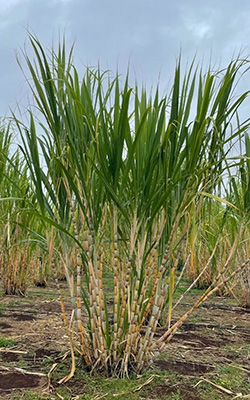The Role of Sugar and Cane in Creating Flavored Syrups and Sweeteners
The Role of Sugar and Cane in Creating Flavored Syrups and Sweeteners
Blog Article
Why Cane Sugar Processing Chemicals Are Important for Modern Sugar Refining
The role of walking stick sugar handling chemicals in contemporary sugar refining can not be overstated, as they are indispensable to enhancing both the effectiveness of extraction and the total high quality of the end product. Agents such as phosphoric acid and particular flocculants are employed to remove pollutants, resulting in sugar that not only fulfills consumer assumptions but also abides by sector standards. Nevertheless, the effects of these chemicals extend past high quality, discussing market characteristics and ecological factors to consider. This increases essential inquiries regarding the sustainability of such methods and their influence on the future of sugar manufacturing.
Role of Processing Chemicals
The effectiveness of walking stick sugar processing pivots dramatically on the tactical application of processing chemicals. These chemicals play a critical function in improving the efficiency and top quality of sugar removal and refining. From the preliminary stages of juice removal to the final filtration steps, processing chemicals assist in various essential operations.
In the extraction phase, chemicals such as phosphoric acid and calcium hydroxide are used to maximize the information procedure, helping to remove contaminations and put on hold solids from the cane juice. This not only improves the return but additionally guarantees the clarity of the final product. Additionally, agents like flocculants aid in the quick settling of pollutants, consequently streamlining the general process.
Activated carbon and ion exchange materials serve to get rid of shade and odor, making certain that the refined sugar fulfills consumer top quality standards. Therefore, the thorough selection and application of these chemicals are vital for attaining ideal results in walking cane sugar handling.
Trick Sorts Of Chemicals
Walking stick sugar handling relies on a variety of vital chemicals that assist in each phase of manufacturing. These chemicals play essential roles in clearing up, bleaching, and detoxifying the sugar drawn out from cane.
One main category of chemicals consists of flocculants, such as polyacrylamide, which aid in the information process by advertising the gathering and settling of pollutants. In addition, calcium hydroxide is typically employed to reduce the effects of level of acidity and assist in the elimination of non-sugar components.
Whitening representatives, such as activated carbon and sulfur dioxide, are used to decolorize the syrup, causing a clearer last product. These chemicals assist eliminate color compounds that might affect the sugar's look and bankability.
Additionally, phosphoric acid works as a pH regulatory authority throughout the handling stages, making sure ideal problems for the enzymatic activities associated with sugar extraction and purification.
Various other vital representatives include edta (ethylenediaminetetraacetic acid), which chelates steel ions that might catalyze undesirable reactions, and sodium hydroxide, which helps in pH control throughout the refining process. Collectively, these chemicals enhance effectiveness and make sure a top notch walking stick sugar product.
Benefits for Sugar Quality
Often ignored, using particular handling chemicals dramatically improves the total quality of walking stick sugar. These chemicals play a pivotal function in refining processes, making sure that the end product satisfies stringent industry requirements for purity and preference.

Furthermore, refining chemicals aid in achieving a consistent granulation and texture, which are essential for customer acceptance. By regulating the formation process, these chemicals make certain that the sugar crystals develop evenly, causing an extra attractive product that liquifies well in different applications.
Furthermore, the usage of these chemicals can enhance the shelf life of walking stick sugar by decreasing moisture absorption and microbial growth. Generally, the calculated application of processing chemicals is important for delivering high-grade cane sugar that satisfies customer expectations and sector needs.
Ecological Effect Factors To Consider

In addition, the energy-intensive nature of sugar refining, compounded by chemical usage, often leads to raised carbon emissions. This adds to climate adjustment and increases problems pertaining to the sustainability of present refining methods. Furthermore, the sourcing of these chemicals may entail methods that endanger biodiversity, such as monoculture farming, which lowers the strength of farming ecosystems.

To minimize these effects, sugar refiners are progressively discovering lasting have a peek at these guys alternatives and embracing finest methods that reduce chemical use. Executing strenuous environmental monitoring systems can assist make certain that the refining procedure straightens with environmental criteria and promotes biodiversity. Ultimately, a balanced technique that focuses on both sugar quality and ecological stewardship is vital for the long-lasting practicality of the sugar industry.
Future Trends in Refining
As the sugar industry comes to grips with the ecological difficulties related to conventional refining techniques, ingenious techniques are emerging to boost both effectiveness and sustainability. One substantial pattern is the fostering of eco-friendly chemistry principles, which focus on making use of non-toxic, eco-friendly processing chemicals. This shift not only decreases ecological impact however additionally addresses customer need for cleaner production approaches.
Another encouraging advancement is the implementation of advanced filtering modern technologies, such as membrane layer splitting up and adsorption procedures. These strategies boost the quality and high quality of the sugar while lowering the quantity of wastewater generated during refining. In addition, the assimilation of digital technologies, including IoT and AI, is changing functional effectiveness by allowing real-time tracking and predictive maintenance, hence reducing resource waste.
In addition, making use of byproducts find out from sugar refining, such as bagasse and molasses, is obtaining grip. These products can be exchanged biofuels or value-added items, adding to a circular economic climate within the sector. Jointly, these fads signify a change towards more lasting practices that not only enhance operational performance however also align with international sustainability goals, ensuring the future stability of sugar refining.
Conclusion
Walking cane sugar processing chemicals are crucial in modern-day sugar refining, dramatically improving the effectiveness and quality of sugar extraction. The strategic use these chemicals not only boosts the pureness and taste of the end product but additionally ensures regular condensation and appearance. As the industry progressively prioritizes sustainability, the fostering of environmentally-friendly handling representatives is most likely to form future patterns in refining, inevitably causing greater top quality items and prolonged service life for consumers.

Inevitably, a well balanced technique that prioritizes both sugar top quality and ecological stewardship is important for the lasting feasibility of the sugar sector.
Walking cane sugar processing chemicals are important in contemporary sugar refining, considerably boosting the efficiency and top quality of sugar extraction.
Report this page